How to Study for a Difficult Subject
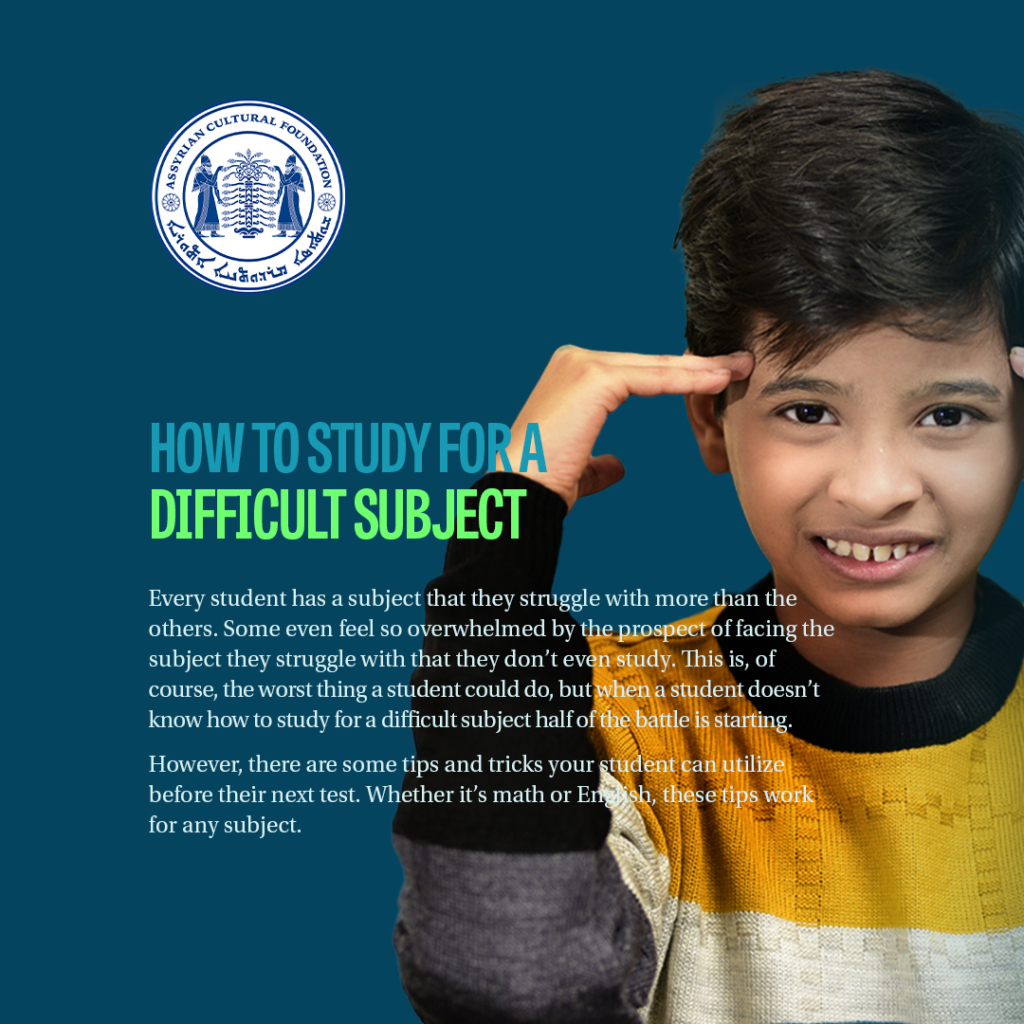
How to Study for a Difficult Subject
Every student has a subject that they struggle with more than the others. Some even feel so overwhelmed by the prospect of facing the subject they struggle with that they don’t even study. This is, of course, the worst thing a student could do, but when a student doesn’t know how to study for a difficult subject half of the battle is starting.
However, there are some tips and tricks your student can utilize before their next test. Whether it’s math or English, these tips work for any subject.
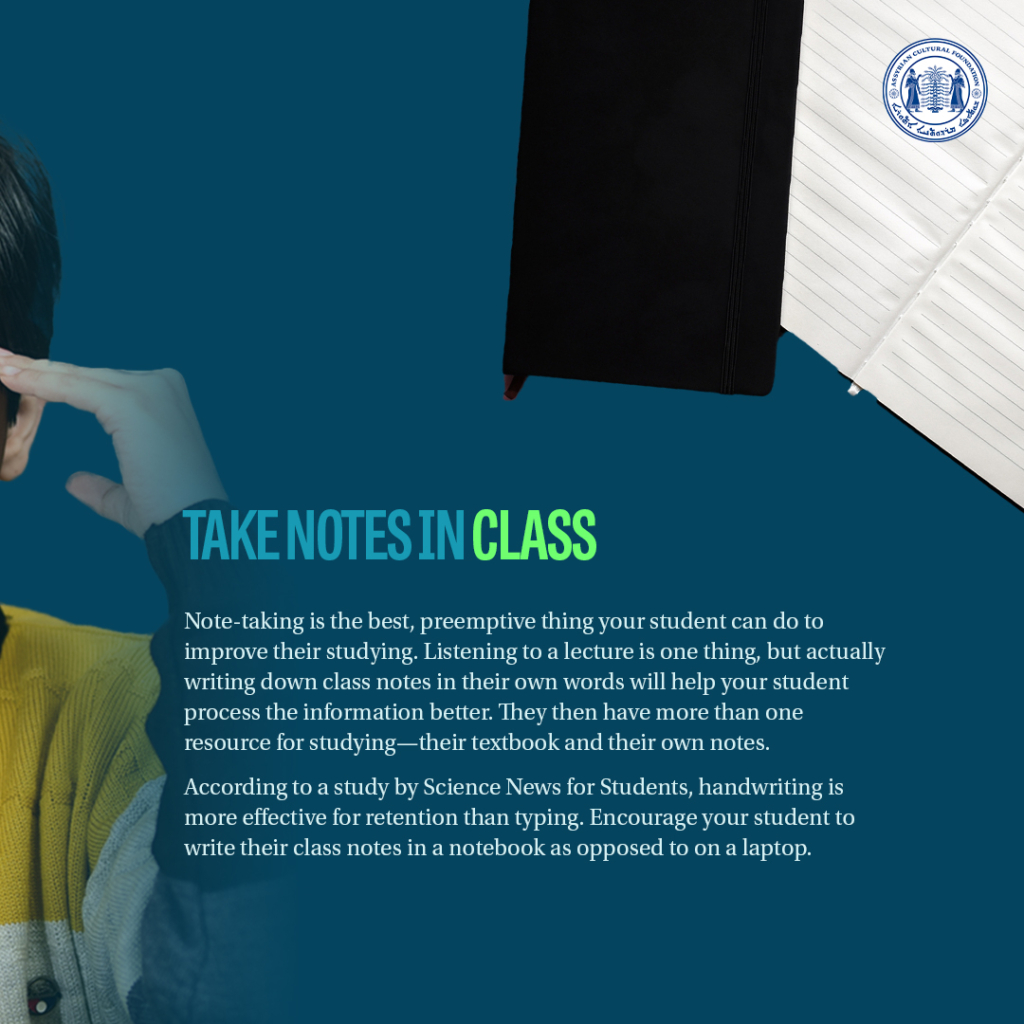
Take notes in class
Note-taking is the best, preemptive thing your student can do to improve their studying. Listening to a lecture is one thing, but actually writing down class notes in their own words will help your student process the information better. They then have more than one resource for studying—their textbook and their own notes.
According to a study by Science News for Students, handwriting is more effective for retention than typing. Encourage your student to write their class notes in a notebook as opposed to on a laptop.
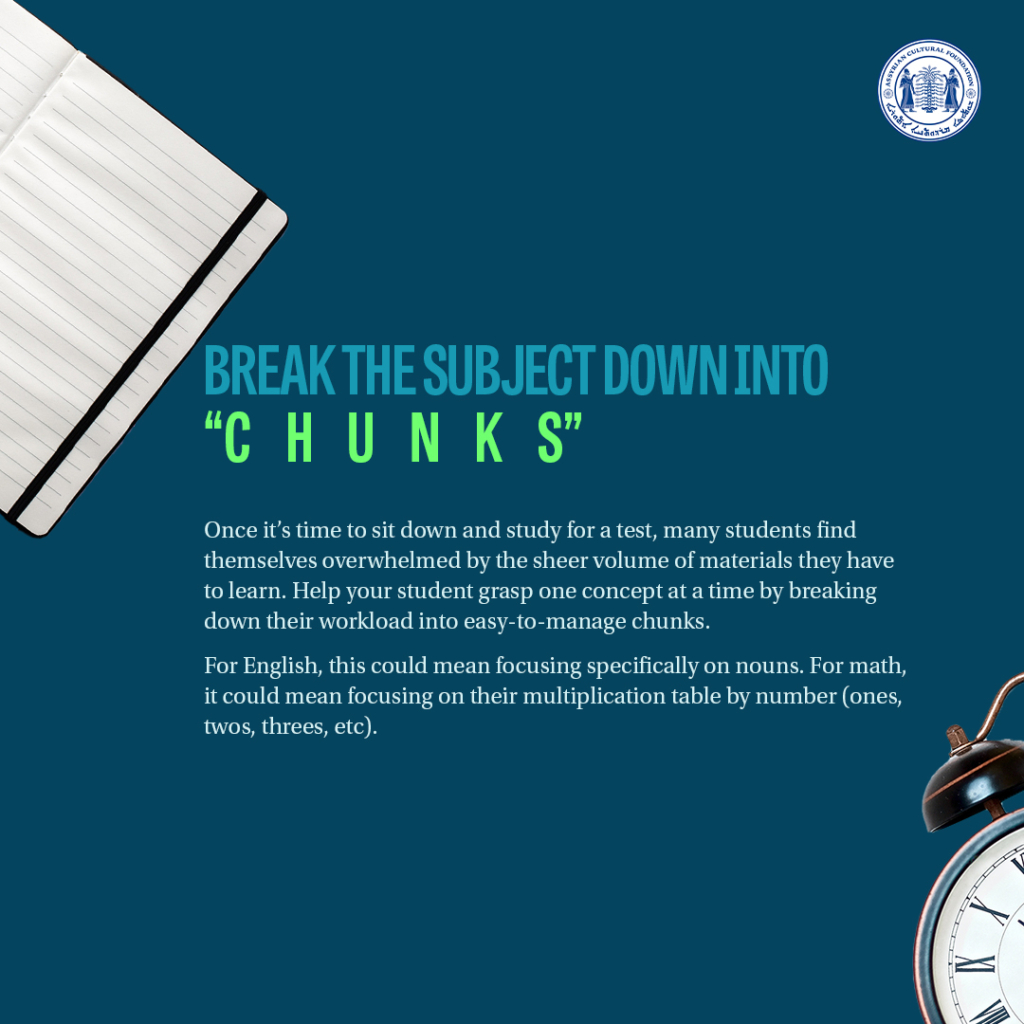
Break the subject down into “chunks”
Once it’s time to sit down and study for a test, many students find themselves overwhelmed by the sheer volume of materials they have to learn. Help your student grasp one concept at a time by breaking down their workload into easy-to-manage chunks.
For English, this could mean focusing specifically on nouns. For math, it could mean focusing on their multiplication table by number (ones, twos, threes, etc).

Study for shorter lengths of time every day
When a student crams all of their study materials all the day before the test, they won’t be able to absorb as much information as they need to. Instead, make sure your student studies a little bit every day as opposed to all night right. Even if they just go over what they learned that day for 10 minutes, it’ll help them maintain their knowledge base when a big test comes up.
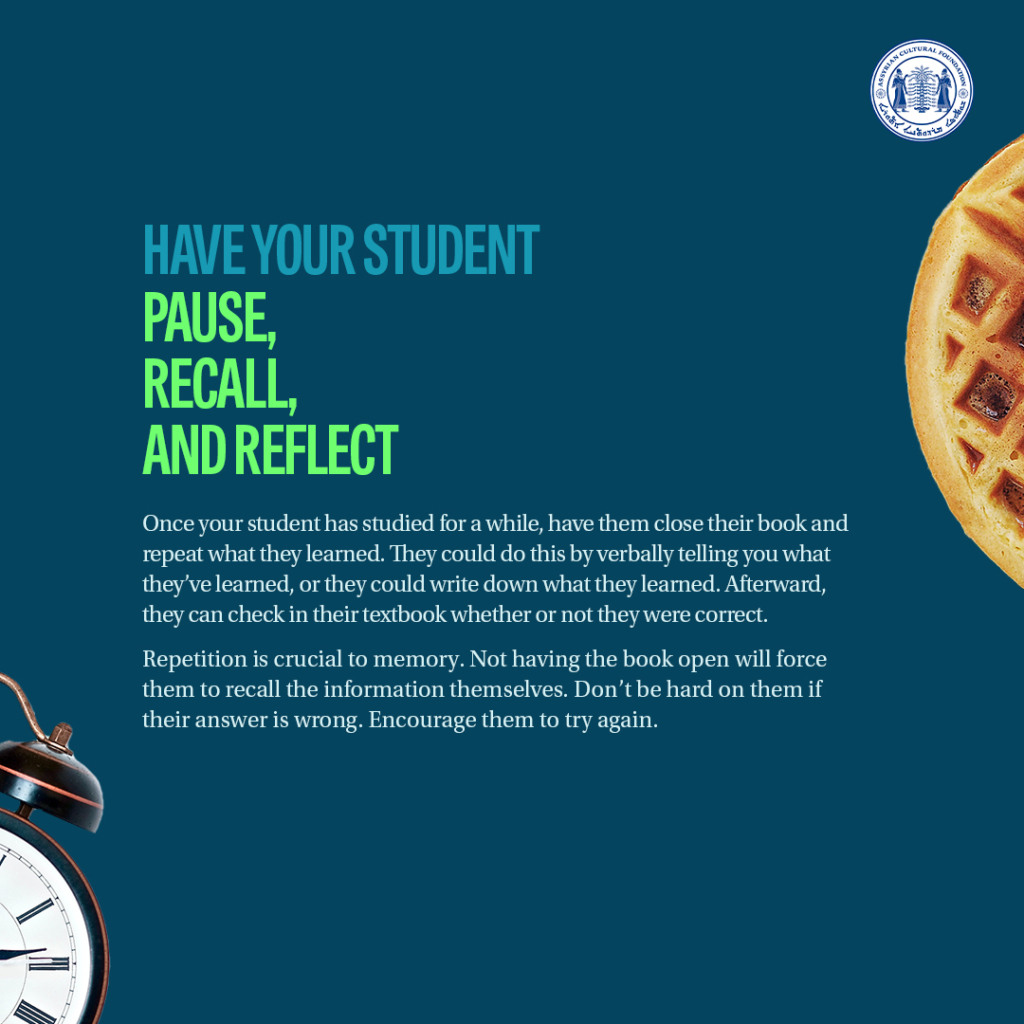
Have your student pause, recall, and reflect
Once your student has studied for a while, have them close their book and repeat what they learned. They could do this by verbally telling you what they’ve learned, or they could write down what they learned. Afterward, they can check in their textbook whether or not they were correct.
Repetition is crucial to memory. Not having the book open will force them to recall the information themselves. Don’t be hard on them if their answer is wrong. Encourage them to try again.
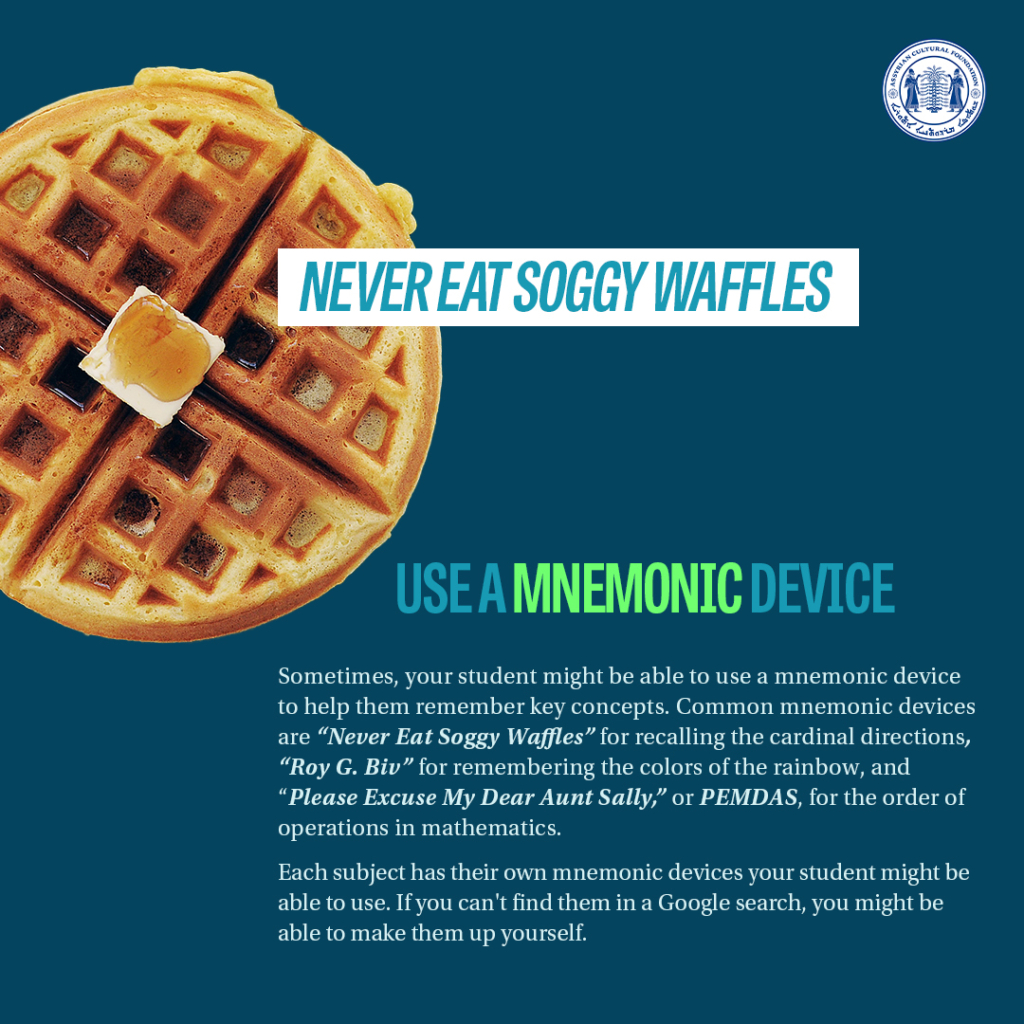
Use a mnemonic device
Sometimes, your student might be able to use a mnemonic device to help them remember key concepts. Common mnemonic devices are “Never Eat Soggy Waffles” for recalling the cardinal directions, “Roy G. Biv” for remembering the colors of the rainbow, and “Please Excuse My Dear Aunt Sally,” or PEMDAS, for the order of operations in mathematics.
Each subject has their own mnemonic devices your student might be able to use. If you can’t find them in a Google search, you might be able to make them up yourself.
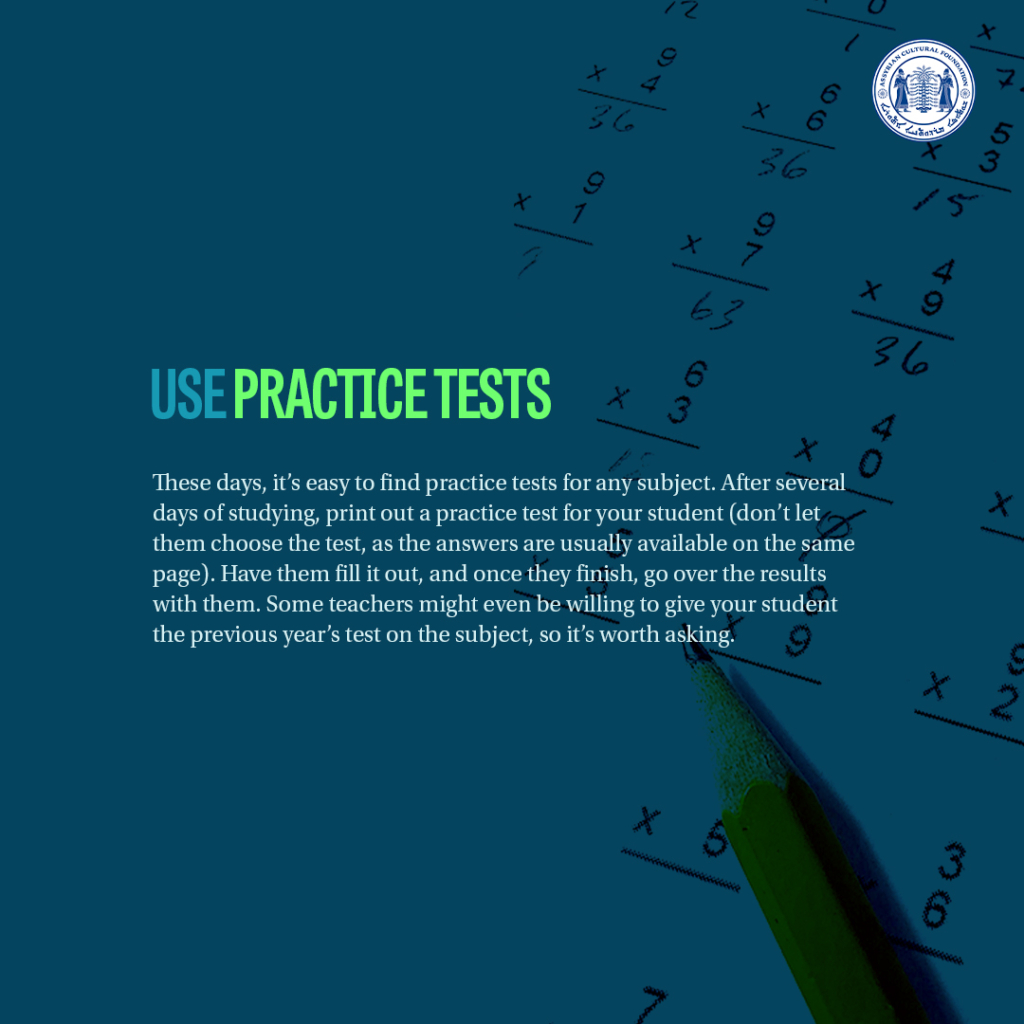
Use practice tests
These days, it’s easy to find practice tests for any subject. After several days of studying, print out a practice test for your student (don’t let them choose the test, as the answers are usually available on the same page). Have them fill it out, and once they finish, go over the results with them. Some teachers might even be willing to give your student the previous year’s test on the subject, so it’s worth asking.
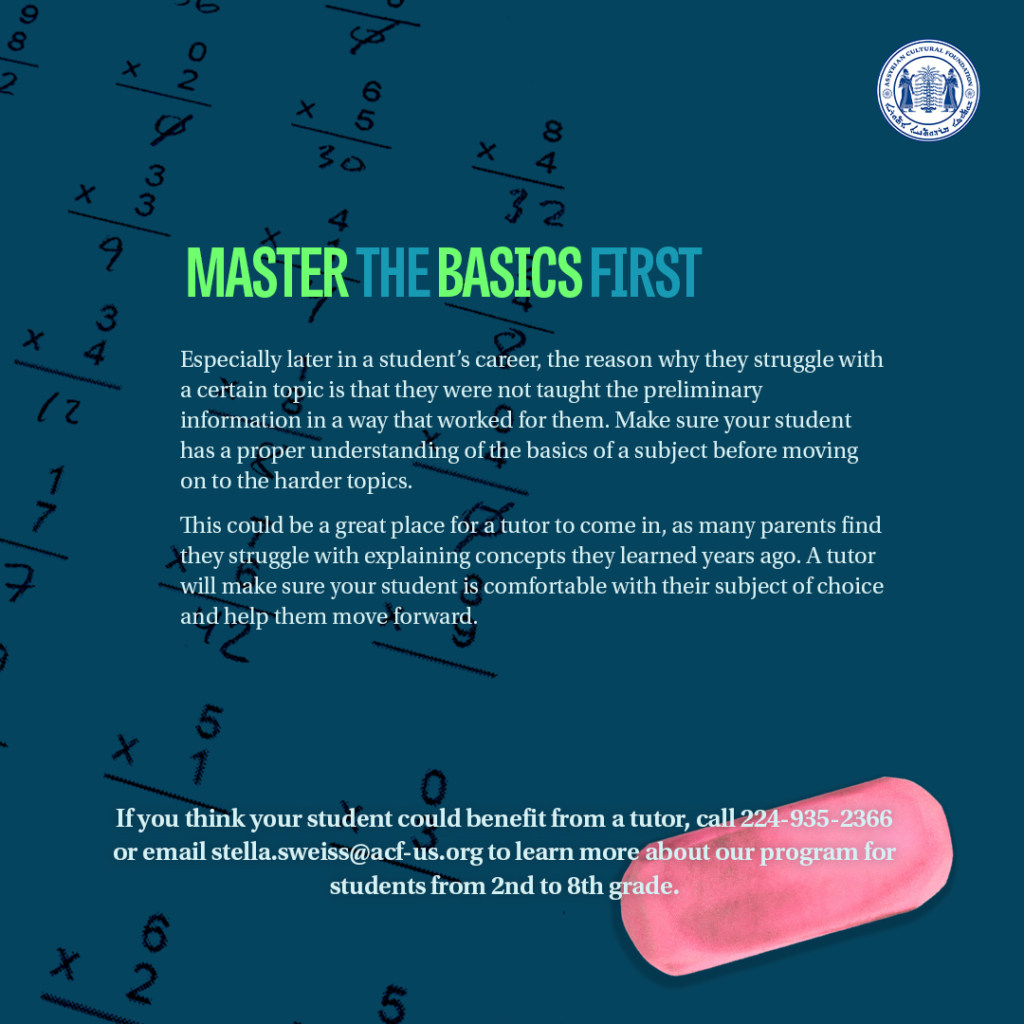
Master the basics first
Especially later in a student’s career, the reason why they struggle with a certain topic is that they were not taught the preliminary information in a way that worked for them. Make sure your student has a proper understanding of the basics of a subject before moving on to the harder topics.
This could be a great place for a tutor to come in, as many parents find they struggle with explaining concepts they learned years ago. A tutor will make sure your student is comfortable with their subject of choice and help them move forward.
If you think your student could benefit from a tutor, call 224-935-2366 or email stella.sweiss@acf-us.org to learn more about our program for students from 2nd to 8th grade.
